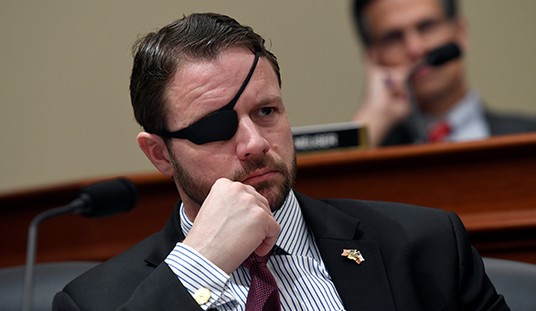As we’ve seen, Obama supporters have a distasteful habit of accusing critics of racism. A white president, they insist, wouldn’t be treated so disrespectfully — heckled by a member of Congress, questioned about his U.S. citizenship, caricatured as an African witch doctor, etc.
But what in the world does any of this have to do with the immigration debate? Not much, except perhaps in the mind of the reader who recently objected to a commentary I wrote on this site about Obama supporters playing the race card. After all, he claimed, I deal from the same deck when arguing in favor of comprehensive immigration reform — including earned legalization for undocumented immigrants.
“This is your standard SOP for anyone that disagrees with you,” he wrote. “It’s also standard SOP for all left wing nutters. Must we link to only about 5 different pieces that you wrote in PJM alone where you say anyone that opposes your ideas is racist.”
Thus, I stand accused of hypocrisy and of unfairly injecting race into the immigration discussion.
I plead “not guilty” to both counts.
First, unlike Team Obama, I’ve never used the accusation of racism as a device to get people to stop criticizing me. All I’ve done is point out that parts of the immigration debate are all about race and always have been — unless you believe that Benjamin Franklin railed against German immigrants in the late 1700s because of, say, national security.
Or maybe you think that, when Congress passed the Chinese Exclusion Act in 1882, it was being colorblind. Or maybe you believe that, when Sen. Henry Cabot Lodge, in 1905, accused immigrants of “diminishing the quality of our citizenship,” it had nothing at all do with the fact that most of the immigrants streaming into Lodge’s state of Massachusetts happened to be Irish. Or maybe you think it’s just a coincidence that, when Congress passed the Immigration Act of 1924, it sought primarily to limit the number of immigrants from “southern Europe” (read: Italy). Today, unfortunately but unavoidably, the immigration reform debate has morphed from anti-illegal immigration to anti-Latino.
This isn’t to say that I think — let alone have written — that anyone who disagrees about the need for comprehensive immigration reform or who simply opposes illegal immigration is a racist. I don’t, and I haven’t. Racism is undeniably in the mix of the immigration debate, but it’s not the main ingredient. Besides, it’s not that easy to be called a racist. You have to earn that title. But, believe me, some people really work at it.
It usually starts with a worry about what some consider the inferior stock of the immigrants coming ashore — or crossing the border. The newcomers are poor, uneducated, low skilled, prone to have larger babies, etc. Take your pick.
After all, that’s one way that racism manifests itself — through a sense of superiority on behalf of one group toward another. It can also come through fear or animosity. You’ll find all three flavors in the modern immigration debate.
Some Americans dispute this and continue to insist that race and ethnicity have nothing to do with concerns over illegal immigration. Rather, what has so many people upset, they claim, is that it is — hello? — illegal.
Nonsense. If that were true, the debate over curbing illegal immigration wouldn’t lapse so quickly into talk of limiting legal immigration as well. Nor would it be the case that some of the most vocal organizations on the restrictionists’ side — the Center for Immigration Studies, the Federation for American Immigration Reform, NumbersUSA, etc. — have an agenda that includes limiting both legal and illegal immigration. Nor would there be such ugliness, as when conservative commentator Patrick Buchanan wrote in a recent book that the United States was better off in the early part of the last century when most of its immigrants came from Europe as opposed to Asia, Africa, and Latin America. Or when former Congressman Tom Tancredo glibly referred to Miami as “a Third World country.”
Some people might refuse to accept it, but there’s a word for that kind of thinking. And, don’t look now, but it ends in “-ism.”
Unlike what goes on in the Obama White House, this isn’t about deflecting criticism or attacking critics. It’s about accepting reality and finding a way to deal with it so we can fix a broken system.









Join the conversation as a VIP Member